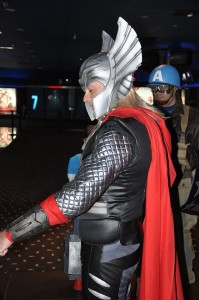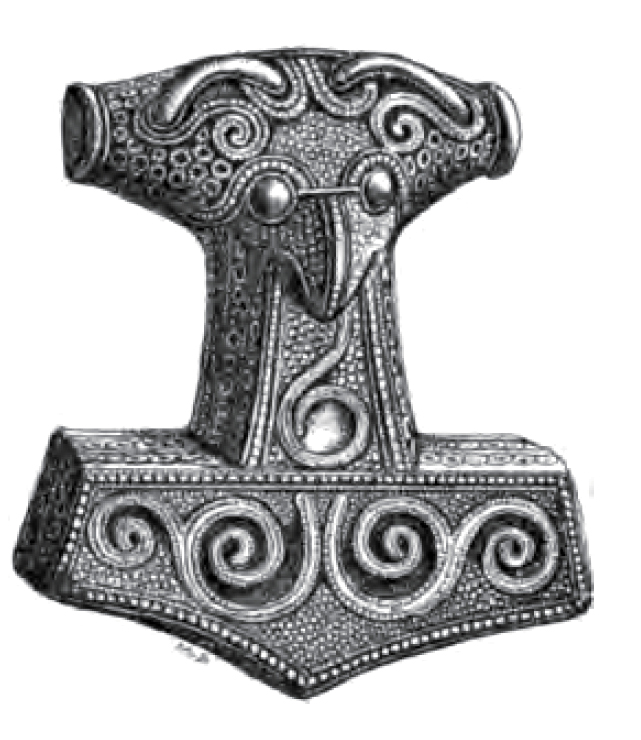
Marvel Comics’ decision to change the gender of their Norse god hero Thor from male to female has certainly provoked a large amount of column inches. Not least from those pondering the potential impact on Chris Hemsworth’s role in the character’s next big-screen outing! Joking aside however, Marvel have said that it’s a move designed to attract girls and young women to the world of comic books, so there is, in theory, a serious aim behind the decision.
Outside of the world of comics though, could a change like this in popular culture have a wider effect on the role or consideration of women in the workplace? We spoke to leading Scottish businesswoman Sarah Ronald, Managing Director and Founder of Nile Experience & Service Design, and Clinical Psychologist Dr Marie Ferguson to get their take.
We often hear about the importance of role models but can you give us an insight into how much cultural signals and the existence of aspirational figures really have an effect on our ambitions as we’re growing up?
SR: Role models are hugely important (though, personally, I never aspired to be the God of Thunder).They show us the way, they set an example, whether they are a parent, a sibling, a sportsperson, or a superhero. They also provide inspiration to our aspiration. They shape our goals by showing us what can be achieved. Cultural signals also shape us. What inspires people in the UK, may not inspire others elsewhere.
MF: Usually the most important and influential role models we have in life tend to be people we know rather than celebrities, such as parents, siblings a good teacher/lecturer or a great manager that we looked up to and who spent time with us. That’s not to say that we are not influenced by our favourite books, pop stars, films or comics. There are many things that play a part.
Do you think Marvel’s move is an important symbol of society accepting the need for gender equality… or just a gimmick?
SR: Women superheroes are not new. We’ve had Catwoman, Wonder Woman, Storm, Bat Girl, and others, though perhaps we never had one quite like this. Turning Thor into a combative, muscular female seems more about targeted marketing than gender equality. Thor, the movie, was pretty successful so I imagine comic book publishers saw that as a good opportunity to cash-in.It is a bold move so it will probably get a lot of free publicity. Thor? The God of Thunder? A woman? See, it’s working already.
MF: I think it’s probably a bit of a publicity stunt. Marvel has described their recasting of Thor as a woman as ‘one of the most shocking and exciting changes’. That comment in itself tells us that they hoped to provoke a reaction. Change is normally instigated to improve something and make it better. Do they mean that the only way to improve Thor is to change his gender? I wonder how men are supposed to take this, as it gives the impression that there was something wrong with him being male. Yet he was a successful character so that doesn’t make sense.
Similarly, what message does this send to women? That in order to be an “exciting” and “new” female superhero they need to take on a character that’s already been established and made popular by a man? If it were to be taken seriously it would seem like a confused and strange definition of equality. If Marvel want to attract more female readers and believe they need more female characters to achieve this, then I’m surprised they don’t just create new ones. But of course, that probably wouldn’t have generated the same publicity.

Is there a danger of the ‘Thor effect’ sending the message that women have to behave more like men to achieve prominence in their sector, rather than achieving it with their own – potentially different – abilities?
SR: A movie like Thor can send any message it wants, but I think most women don’t need to be told who they are, or how to behave. In business, the gender inequality gap is slowly closing and more women are creating their own opportunities and being successful in those. I think when women embrace their natural talents, they are authentic in their roles and perform at a high level.
In my view, this is most particularly true when there is a managerial/people component involved. If the new female Thor has any value as a role model for women it would be to encourage us to have more self-confidence. Global studies consistently show that even high-performing women suffer, and can be held back by, a lack of confidence.
What do you think about Marvel’s decision? Does it send out any wider cultural messages that could have a serious impact, or is it simply a PR move?
Images by Juan Ignacio Rodríguez de León and Professor Magnus Petersen, used under Creative Commons licence.


